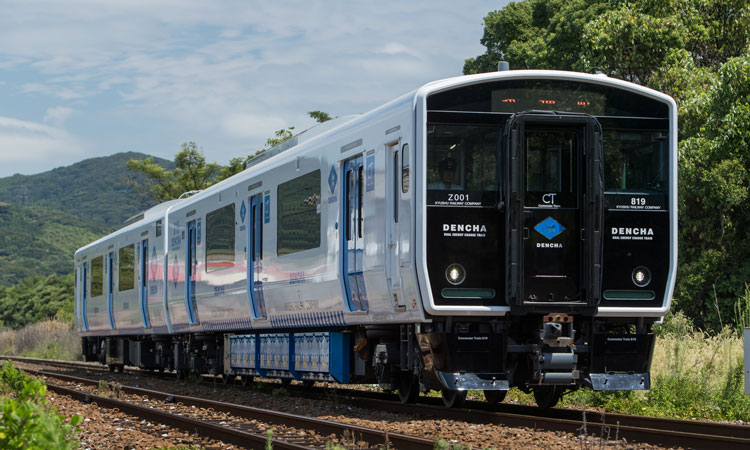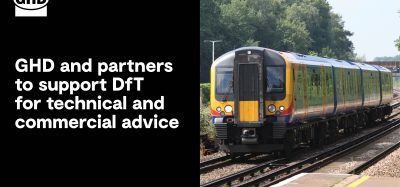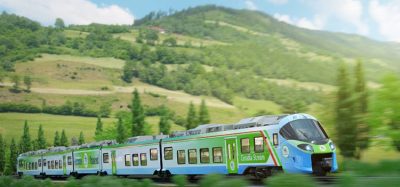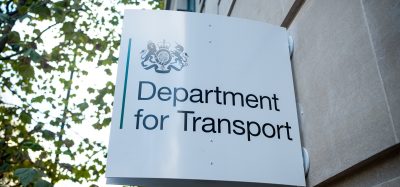Japan’s DENCHA train celebrates five years of battery-powered service
Posted: 19 October 2021 | Global Railway Review | No comments yet
Over the past five years, JR Kyushu’s DENCHA trains – the world’s first battery-powered train charged by AC overhead lines – have reduced CO2 emissions by 2.7 million kg.


DENCHA train running on battery power. Credit: Hitachi Rail
Kyushu Railway Company (JR Kyushu) and Hitachi Rail are today (19 October 2021) celebrating five years since the first run of the DENCHA train – the world’s first battery-powered passenger train charged by AC overhead lines. Having seen the fleet cut carbon emissions, the manufacturer, Hitachi Rail, reaffirmed its commitment to alternative fuel transport offer for passengers and operators across the world.
The BEC819 series trains – branded DENCHA – completed its first journey between Wakamatsu and Orio in October 2016 and have since completed over five million kilometres in passenger service in the northern Kyushu region. With a top speed of 120km/h, nearly 80 per cent of the distance covered – four million kilometres – by the 18 train fleet has been on non-electrified sections of the route.
Thanks to the innovative battery technology, the DENCHA train is capable of running in two modes: on electrified sections it runs from the overhead AC power, and on non-electrified sections it runs in battery mode. Additionally, the trains feature a low energy loss main circuit system that reuses regenerative energy from braking and benefits from fast charging while stopped at stations.
The trains have significantly reduced the railway’s impact on the environment, saving over 2.7 million kg of CO2 from being emitted into the atmosphere over the five year period. Furthermore, the trains are far quieter than the diesel trains they replaced and release no NOx emissions.
The DENCHA fleet was introduced to the Kyushu region of Japan to replace ageing diesel trains. Due to the relatively low traffic volume, electrification was not seen as an ideal solution for the line, instead battery technology offered reduced fuel costs and fulfilled the mission to be “friendly to the future of people and the planet”.
The success of the DENCHA fleet, operated by JR Kyushu, has been the starting point for Hitachi Rail’s development of alternative fuel transport solutions worldwide. The company, which is the principal sponsor for mobility at the COP26 UN climate change conference, has created Masaccio regional battery trains in Italy, battery trams in Florence and plans to trial an intercity battery hybrid train in the UK. It also is part of a partnership with JR East and Toyota to develop hybrid (fuel cell) test vehicles, known as the HYBARI, scheduled to start running next year in Japan.
Developing innovative new low-carbon technology is an important part of Hitachi Rail’s decarbonisation strategy. It is a core part of the company’s mission to enable more seamless and digitally connected journeys.
Koji Agatsuma, Group COO (Rolling Stock), Hitachi Rail said: “The DENCHA battery trains showcase Hitachi Rail’s position as a global leader in delivering battery train technology. The benefits are clear, and five years since its first journey the fleet has reduced CO2 emissions by 2.7 million kg. This battery solution provides the blueprint for thousands of kilometres of unelectrified railways around the world. Through battery control technology, Hitachi Rail is determined to help decarbonise more transport networks while continuing quality passenger services.”
Related topics
Diesel Locomotives, Electric/Hybrid Rolling Stock, Rolling Stock Orders/Developments, Sustainability/Decarbonisation, Technology & Software








